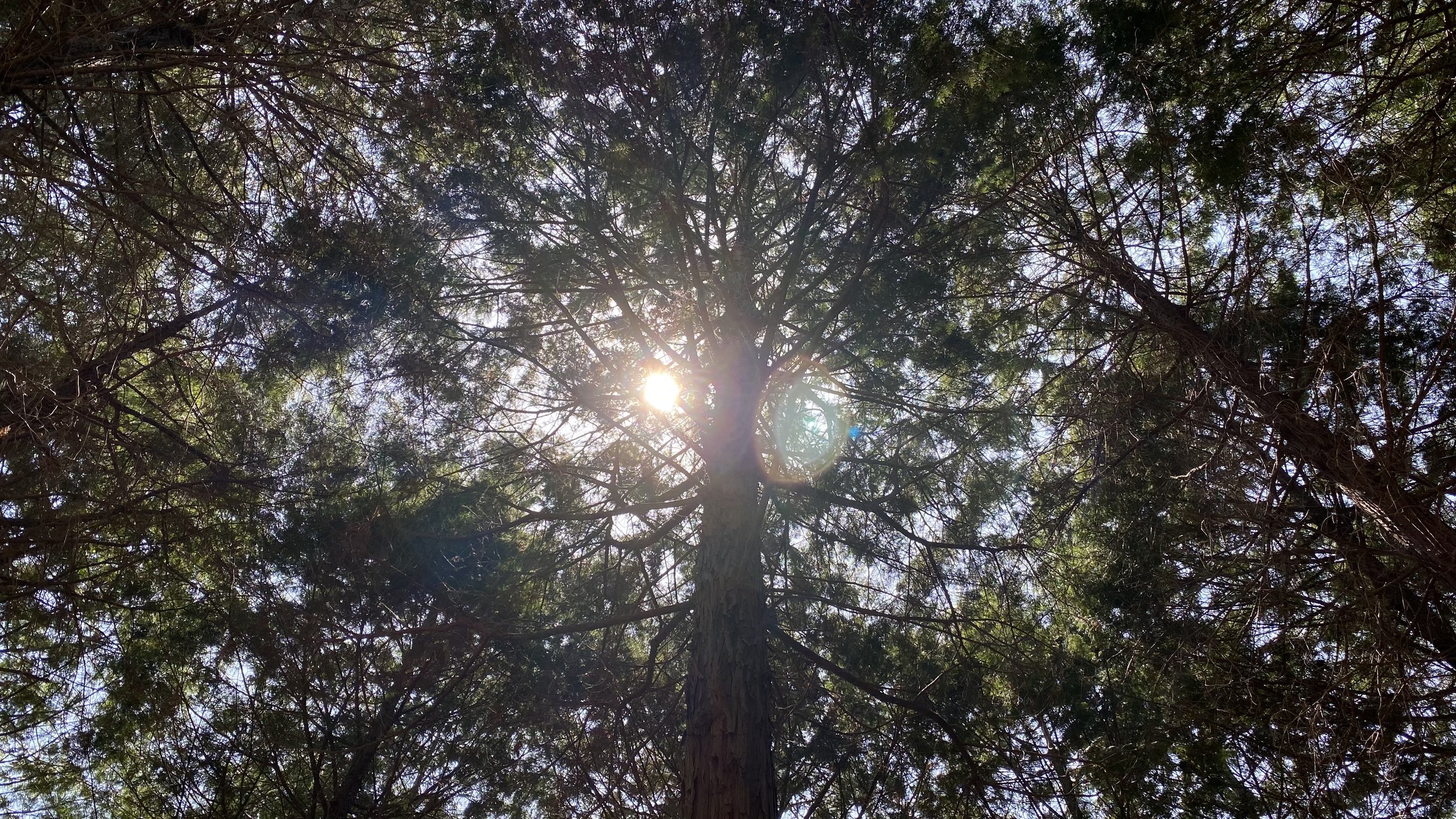WHEN I AM AMONG THE TREES
When I am among the trees,
especially the willows and the honey locust,
equally the beech, the oaks and the pines,
they give off such hints of gladness.
I would almost say that they save me, and daily.
I am so distant from the hope of myself,
in which I have goodness, and discernment,
and never hurry through the world
but walk slowly, and bow often.
Around me the trees stir in their leaves
and call out, ”Stay awhile.”
The light flows from their branches.
And they call again, ”It's simple,” they say,
”and you too have come
into the world to do this, to go easy, to be filled
with light, and to shine.”
Mary Oliver
For most of my mornings, I walk a 3.25-mile loop toward the foothill of the San Gabriel Mountains and back. As Pasadena and Altadena are one of the oldest neighborhoods in Southern California, the area is dotted with magnificent oaks, pines, and sycamores, not to mention the sky-scraping and skinny palm trees. A few years ago, when a nasty 60-mile gusty wind swept the region, many tall trees fell and even decimated portions of numerous old and impressive homes.
A few springs ago, my wife and I along with a couple of friends visited a national park in the southern tip of Korea called Goheung. We quickly found ourselves surrounded by stately Cypress Forest, infusing a healthy dose of Phytoncide into our lungs. All of us got promptly spread out and situated comfortably on a lying down bench, contoured to our bodies to look up to the unmatched combination of trees, sky, and light. We must have stayed there for a good half an hour. (I took this photo above.) This image came to my mind when I read Oliver’s poem today.
Like Oliver, I, too, am “distant from the hope of myself,” often bemoaning the state of my inadequate and fallible being and from second-guessing my authentic self to toxic self-condemnation. If it is self-condemnation, that is one thing, but in my state of self-condemnation, I blame and “attack” others. That is how I roll and how we all roll if we take Rene Girard’s insight of scapegoating seriously—the ability to hate ourselves by attacking others.
What can save me is the imaginative calling of the trees which Oliver says it so simply and poignantly. While I am not an all-out ardent nature lover, I appreciate nature whenever I get out. I, without failure, quickly realize every single time what I have missed all along. My love for the trees is growing. I think I understand the lure of the trees calling, “Stay awhile.” Trees are all rooted and uplifting, growing downward, upward, and outward. As a “grounded” creation, the message of trees calling us to “go easy, to be filled with light, and to shine” is indeed light-filled and uplifting.
I do not know what Oliver meant by “go easy.” How I read today is to go with the flow, the natural flow of life. The message of “going easy” is far from the cry and the teachings of the world. The world teaches us to go hard, compete, and compare to the detriment of denying or falsifying who we truly are. Trees don’t fret or regret. They weather all kinds of natural and man-made elements. They just are, rooted and uplifted, both regardless of the surrounding external world and because of the surrounding environment.
Jesus’ opening teaching of the Sermon on the Mount of being the light of the world (Matthew 5:14) bears in mind that we are poor in spirit, meek, pure in heart, merciful, mournful, etc. (Matthew 5:3-11). It is not that we should be all the above, but that we already are. It is precisely in the state of being poor, pure, mournful, merciful, hungering and thirsting for righteousness that we are the light of the world. In the end, I think Oliver is right—the light we shine is not our own, but the original and only Light that is filtered through our life.
